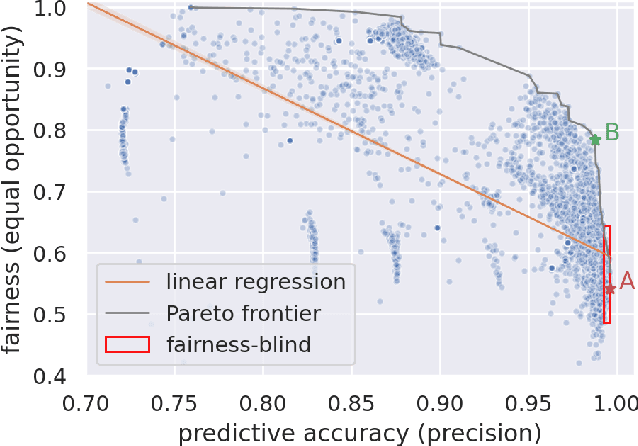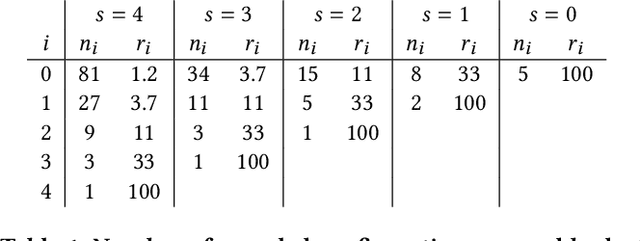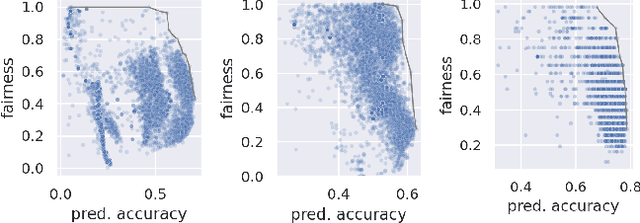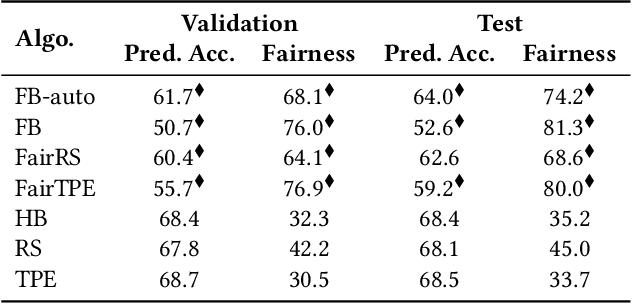Promoting Fairness through Hyperparameter Optimization
Paper and Code
Mar 23, 2021



Considerable research effort has been guided towards algorithmic fairness but real-world adoption of bias reduction techniques is still scarce. Existing methods are either metric- or model-specific, require access to sensitive attributes at inference time, or carry high development and deployment costs. This work explores, in the context of a real-world fraud detection application, the unfairness that emerges from traditional ML model development, and how to mitigate it with a simple and easily deployed intervention: fairness-aware hyperparameter optimization (HO). We propose and evaluate fairness-aware variants of three popular HO algorithms: Fair Random Search, Fair TPE, and Fairband. Our method enables practitioners to adapt pre-existing business operations to accommodate fairness objectives in a frictionless way and with controllable fairness-accuracy trade-offs. Additionally, it can be coupled with existing bias reduction techniques to tune their hyperparameters. We validate our approach on a real-world bank account opening fraud use case, as well as on three datasets from the fairness literature. Results show that, without extra training cost, it is feasible to find models with 111% average fairness increase and just 6% decrease in predictive accuracy, when compared to standard fairness-blind HO.
 Add to Chrome
Add to Chrome Add to Firefox
Add to Firefox Add to Edge
Add to Edge